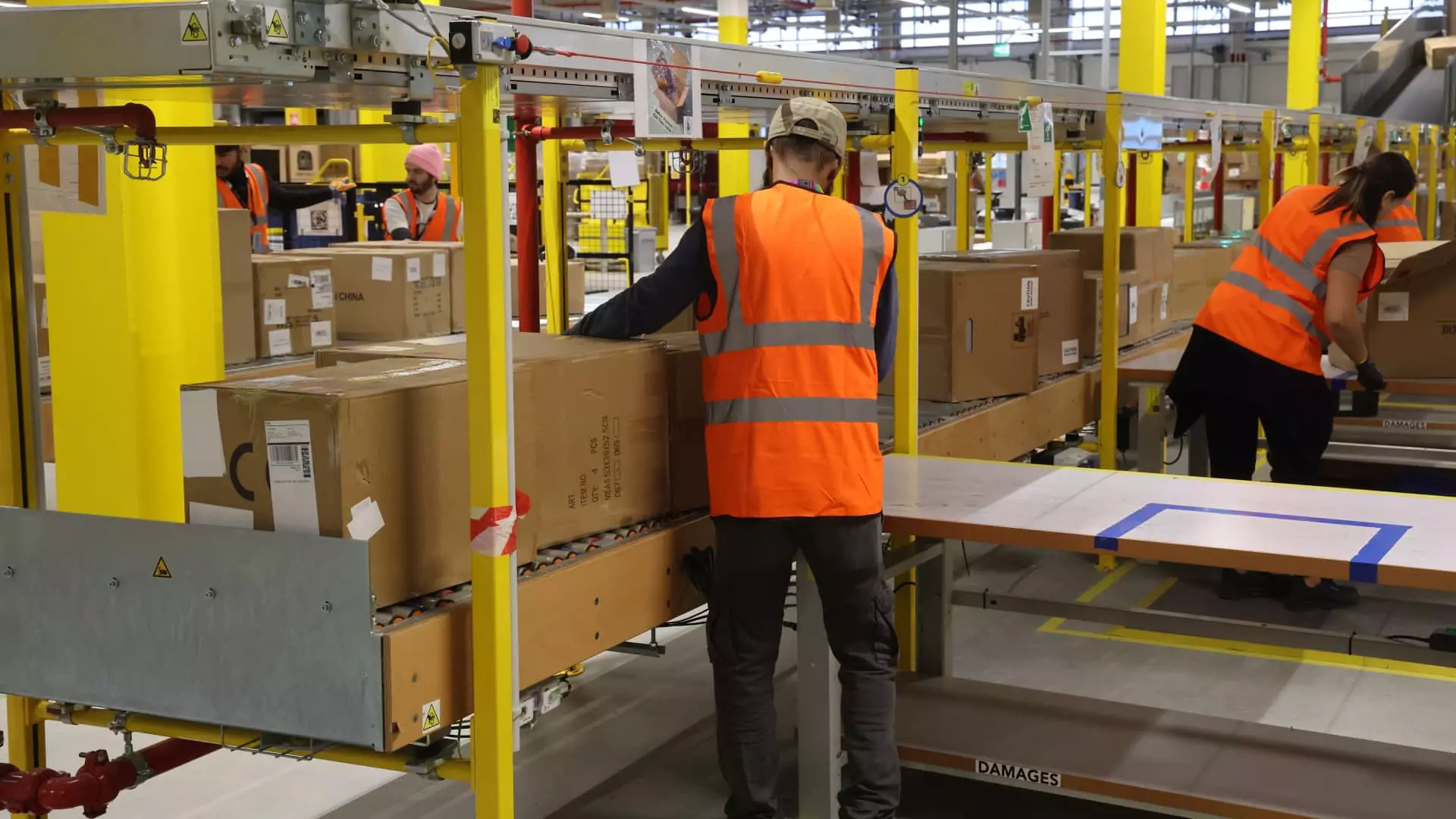In recent years, technological innovation has been heralded as the ultimate catalyst for progress, yet beneath this shiny veneer lies a sobering reality. Amazon’s announcement of crossing the million-robot milestone epitomizes the relentless push toward automation, a move many see as the dawn of a new era of efficiency. The deployment of the “DeepFleet” AI model, promising to streamline warehouse logistics and ostensibly create opportunities for human workers, masks a more troubling truth: the displacement of countless jobs in favor of machines that never tire, complain, or demand fair wages. This begins to unravel any illusion that automation is a benign pathway to progress. In fact, it often functions as a powerful instrument of economic consolidation for corporations, while ordinary workers shoulder the economic and social costs.
Automation as an Economic Weapon
While Amazon touts its growing fleet of robots as “complementary” to human workers, these claims are increasingly suspect. The narrative that robots free employees for higher-skilled, more rewarding work is overly optimistic at best and disingenuous at worst. History indicates that technological advancements tend to—in the short term—displace more jobs than they create. Amazon’s claim that the new fulfillment center in Shreveport, which employs more staff in maintenance and engineering, is evidence of more jobs is overly simplistic. The reality is that this seemingly positive development is the exception rather than the rule. As CEO Andy Jassy’s own words acknowledge, the overall trajectory points toward workforce contraction. Meanwhile, layoffs are no longer isolated incidents but part of a broader trend affecting diverse tech sectors, including the latest in AI and robotics. The rhetoric of “new opportunities” conveniently ignores the seismic job losses already underway, which threaten to widen economic inequality and destabilize communities.
Societal and Ethical Implications
The societal impact of AI automation goes well beyond destroyed job prospects. We are witnessing the emergence of a societal divide where a small elite benefits from automation’s gains, while the majority faces economic insecurity. The widespread deployment of AI-powered robots and increased efficiency could erode the very fabric of middle-class stability, replacing well-paying manufacturing and service roles with low-wage, precarious work. It also raises ethical questions about the role of human labor in a society driven by corporate profit motives—not public good. The supposed safety net, retraining programs, and new job creation are often insufficient to compensate for the magnitude of displacement. Moreover, the narrative that robots will handle only “heavy lifting” dismisses the broader implications: the automation of cognitive tasks will soon threaten white-collar professions, exacerbating social stratification. The notion that society can adapt seamlessly to these changes is naive; historically, technological upheaval has often resulted in hardship and unrest for those left behind.
Balancing Innovation with Humanity
It is vital for policymakers, workers, and societal institutions to critically question the unchecked embrace of AI and robotics in industries that are the backbone of our economy. While technological innovation has undeniable benefits, it should not come at the expense of our collective humanity. The drive for efficiency should incorporate safeguards—not only economic safety nets but also rights for workers to participate in decisions about workplace automation. As AI continues its rise, the focus must shift from purely corporate profit motives to human-centered policies that prioritize equitable growth and social stability. The future of work should not be a dystopian landscape where millions are rendered redundant because machines are deemed more “cost-effective.” Instead, it should be a society where technological progress elevates human dignity, providing opportunities for meaningful engagement and economic security, not just profit-driven convenience. Without conscious intervention, the promise of AI as a tool for societal betterment risks becoming a Trojan horse for mass disenfranchisement and inequality.

